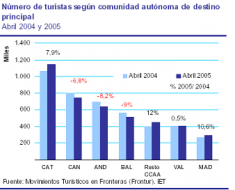Just hours after the Spanish government was forced to declared a state of emergency Spanish air traffic controllers who had unexpectedly walked out of work on Friday due to ‘high levels of stress and anxiety’ slowly began to return to work.
Following 24 hours during which all flights over Spanish airspace had to be cancelled and thousands of passengers were left stranded with little or no information in all of Spain’s airports AENA began to reopen Spanish airspace. By Saturday afternoon it was reported that 90% of Spain’s air traffic controllers who had carried out a wildcat strike on Friday had returned to their posts following being accused of sedition by the government.
The government reacted to the unexpected strike by Spanish air traffic controllers by declaring a state of emergency and calling in the military to help. It is the first time that the Spanish government has declared a state of emergency since Spain returned to democracy following Franco.
In a press conference in the Moncloa Palace Rubalcaba, the Vice President, said that the government had fulfilled its role in dealing with the crisis and assured the public that there would be consequences for each air traffic controller who had taken part in the strike.
He affirmed that AENA which controls Spanish airspace would open a file on each of its employees who had abandoned their posts on Friday. Rubalcaba also said that the government was convinced that a similar situation would never occur again.
The wildcat strike by Spanish air traffic controllers led to complete chaos and affected thousands of passengers who were planning travel on Friday which was the start of one of Spain’s most important bank holiday weekends of the year.
The first flight left Gran Canaria for Luxembourg yesterday and from this moment onwards Spanish airspace began returning it normality.
In Spain’s largest and worst affected airport, Madrid Barajas, the first flights took off at 15.30 hours yesterday afternoon. However, the return to normality also depends on the capacity of each airline to reschedule its flights and organize its cabin crews.
Rubalcaba said that the strike was not only damaging for passengers, airline companies and hotels but also for the image of Spain abroad. Following 24 hours of chaos the main trade union which represents Spanish air traffic controllers called for calm and for its members to return to work as quickly as possible. A spokesperson for the union said that the strike had been caused by the provocation suffered by it members in the form of a decree received the day before the bank holiday weekend was due to begin. He also accused AENA of helping to generate the situation.
The crisis led to Zapatero forming a crisis cabinet and the threat by the government of declaring a state of emergency if the air traffic controllers did not return to work immediately – a course of action which the government was finally forced to take.
Following the declaration of a state of emergency Carmen Chacon,the Minister of Defence, met with General José Jiménez Ruiz the head of the military’s air force and General José Julio Rodríguez, the Head of Defence in order to analyze the evolution of air traffic following the declaration.



